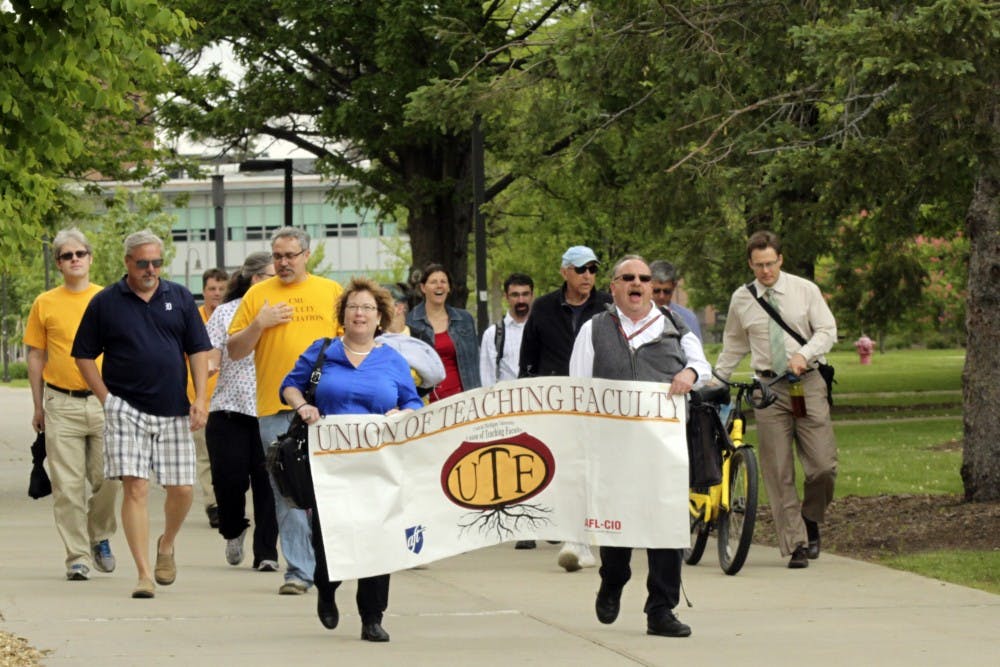Union of Teaching Faculty bargains new contract with university
The Union of Teaching Faculty marched through campus as a new contract bargaining period kicked off today.
The march was in support of the UTF bargaining team that hopes to adhere to their 360 members' needs and concerns to improve their working conditions.
The current contract between UTF and Central Michigan University will end June 30. Bargaining will continue Friday at 1 p.m. in the Education and Human Services Building.
“We are hoping for a revised contract between now and the deadline of the current contract,” said Mark Ranzenberger, UTF Vice President. “We hope to get it done by then. If we don’t we will continue to talk with the university until we reach an agreement.”
The current contract, which was signed June 19, 2012, saw pay increases for both fixed-term faculty, who are paid a salary, and those paid by credit-hour.
Ranzenberger said UTF talked with the university about what they expect in the new contract before bargaining began. Topics such as pay wage, job security and benefits will be discussed.
UTF President Amanda Garrison said job security involves knowing when and what classes a fixed-term instructors will be teaching. Reappointments or non-reappointment letters do not come in a timely manner, she said.
She said the union hopes the new contract will equalize the working conditions of fixed term faculty and ten year faculty.
“No one in the union is asking for tenure, but there are ways in which our job can be more secure,” Garrison said. “There is nothing off the table right now. There is nothing the university has refused us yet. We're simply discussing our working conditions.”
Whitney Dziurka, a union staff organizer for UTF and the Graduate Student Union, said the hardest part about bargaining is both sides coming to an agreement. Bargaining periods are scheduled from 1 to 5 p.m. but can go passed the time scheduled if an agreement is not met.
“The hardest thing about bargaining is trying to get two opposing ends to come to an agreement,” Dziurka said. “Everyone has a lot of needs. We need to figure out a way to adhere to those needs while taking in the needs of the university.”
Dziurka said she hopes for a good contract ramification that is on time.
“I don't think being on time will be an issue because the university seems to be willing to work with us,” she said.




